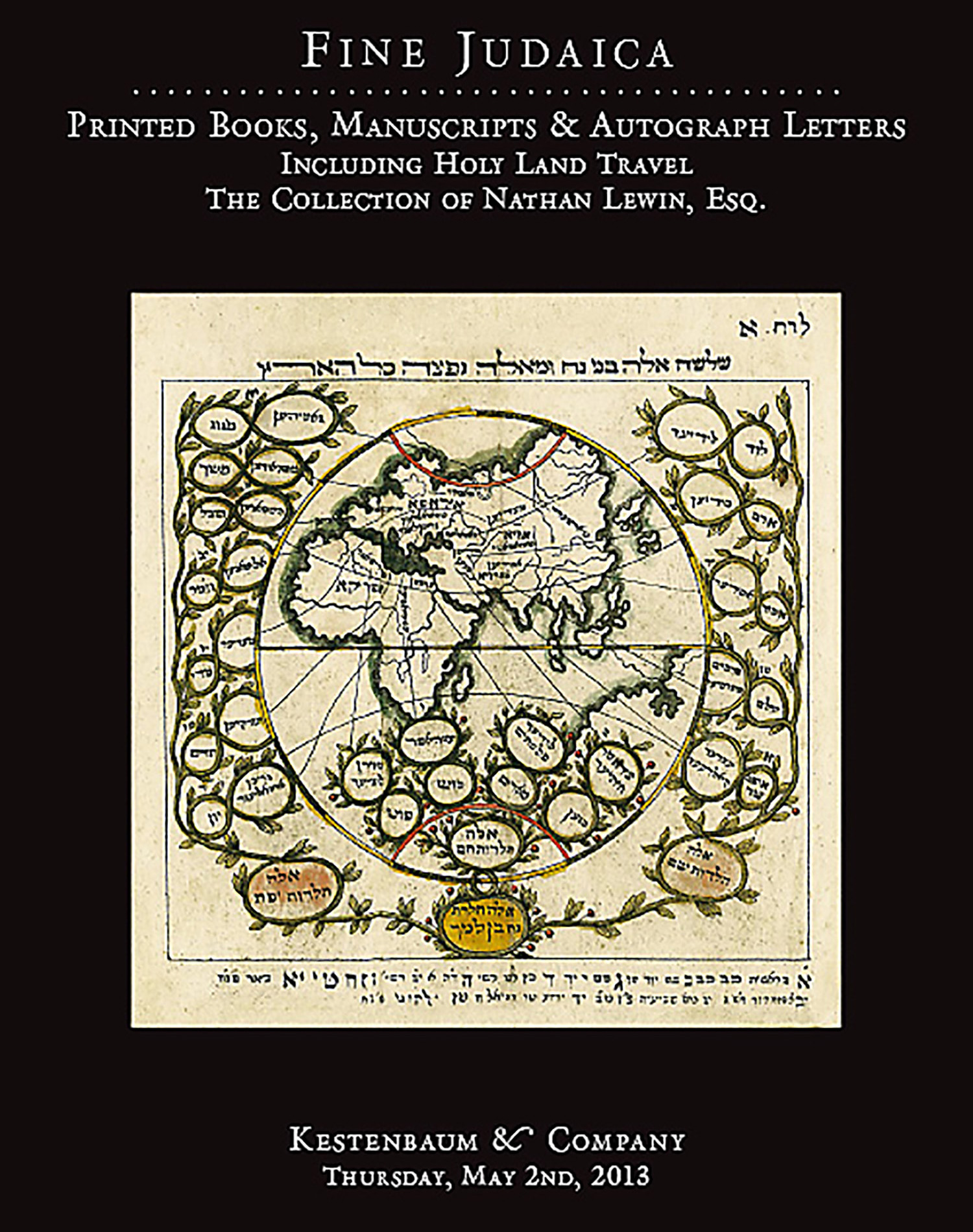WESSELY, NAPHTALI HERZ (HARTWIG).

AUCTION 58 |
Thursday, May 02nd,
2013 at 1:00
Fine Judaica: Printed Books, Manuscripts and Autograph Letters
Lot 285
WESSELY, NAPHTALI HERZ (HARTWIG).
Berlin: Chinuch Ne’arim / Jüdischen Freyshule 1782-85
Est: $700 - $1,000
PRICE REALIZED $750
<<FIRST HEBREW WORK ON JEWISH EDUCATION IN THE SPIRIT OF THE HASKALAH.>>
The Act of Tolerance of 1782 required Jews to establish trade-schools, with German as the language of instruction. Wessely felt this innovation would be of great benefit, arguing in his Divrei Shalom Ve’emeth, that Jewish education should include studies in “human knowledge” that incorporates the totality of secular culture, especially the moral, mathematical and physical sciences. According to Wessely, such general education necessarily precedes religious instruction as it is not possible to understand Divine teachings without secular acculturation. Wessely concludes that one who studies the Torah without acquiring common secular knowledge is indeed a burden upon society. Wessley’s pamphlet met with opposition among traditionalist rabbis. These rabbis regarded the Act of Tolerance with skepticism, fearing its implementation would promote assimilation. They were outraged that at such a critical juncture, a fellow Jew would not only urge the unqualified application of the Act’s measures but additionally assail the prevalent system of Jewish religious education.
In the three subsequent works bound in, Wessely responds to criticism and defends his new educational program.
See M. Carmilly-Weinberger, Censorship and Freedom of Expression in Jewish History (1977), pp. 111-13; A. Altmann, Moses Mendelssohn, A Biographical Study (1973), pp. 476-86.
